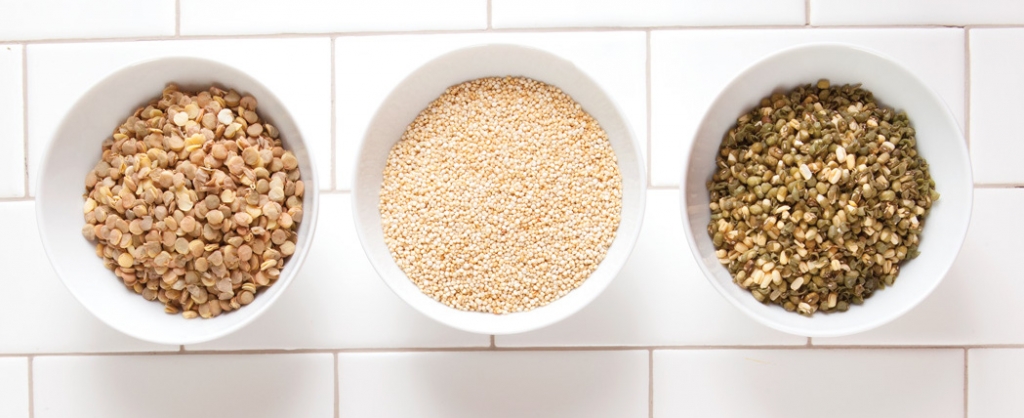Daily Dish the Fork Lift blog

Sprouted-grain Primer
Health Notes from Dr. Liz
Please note that this is an older article. Any products or services pictured or described may have changed or may no longer be available. Thank you for visiting!
Mother Nature knows how to pack a whole lot of nutrition into a tiny little package: for example, into the seeds of plants. Beans, grains, and nuts, as well as chia, sunflower, flax and other seeds, can provide a wealth of nutrition. And when they’ve sprouted, these seeds’ health benefits only increase. Check out sprouted grains’ health resume...
Mother Nature knows how to pack a whole lot of nutrition into a tiny little package: for example, into the seeds of plants. Beans, grains, and nuts, as well as chia, sunflower, flax and other seeds, can provide a wealth of nutrition. And when they’ve sprouted, these seeds’ health benefits only increase. During the sprouting process, a plant seed comes “alive,” giving the soon-to-be-emerging seedlings an injection of the crucial protein, carbohydrate energy, vitamins and minerals needed to establish a new plant. Some of these sprouted grains, like emmer or farro wheat grains, can be used to make hearty breads, so you can harness these health benefits for yourself. Check out sprouted grains’ health resume:
- Digestibility boost: Plant seeds supply basic nutrients — carbs and protein — that when eaten uncooked or un-sprouted are a bit tough for our digestive tracts to handle. With spouting, the seed’s carbohydrates and proteins are more readily digested, making these nutrients easier to take up by our digestive systems.
- Protein surge: During the sprouting process, the emerging seedling stimulates an array of changes that lead to an increase in the amount and quality of protein in the seed. While sprouts are not a high-protein food, you can still use them to add a little extra protein to a sandwich, wrap, salad or stir-fry, especially if you are emphasizing mostly plant-based foods in your diet.
- Vitamin kick: While sprouting, the new seedling is busy making the nutrients that it will need as a plant. Levels of B vitamins increase, and more antioxidants such as vitamin C and beta-carotene are made.
- Fiber plus: In just one day of sprouting, the level of soluble fiber (the type that helps curb appetite and lowers blood cholesterol) goes up two-fold in most sprouting seeds.